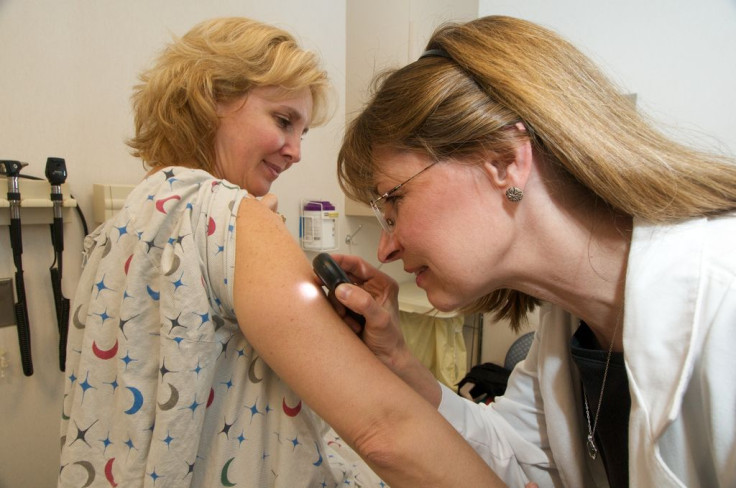For Those With White Skin, Skin Cancer Increases Future Risk For Other Forms of Cancer

In a study published today at PLOS Medicine, researchers found that white men and women with a history of non-melanoma skin cancer are at a higher risk of a later occurrence of other forms of cancer.
White men with a history of non-melanoma skin cancer had a 15 percent increased risk in developing a later occurrence of cancer. White women with a history of non-melanoma skin cancer, on the other hand, had a 26 percent increased risk of developing a later occurrence of cancer
Both of these numbers are relative to those with no history of non-melanoma skin cancer.
Men and women with a personal history of non-melanoma skin cancer, such as basal cell carcinoma and squamous cell carcinoma, were shown to be at a higher risk of a later occurrence of another form of cancer — breast and lung cancer specifically for women — and melanoma for both sexes.
The study found that participants with a history of non-melanoma skin cancer were likelier to be older and to experience severe sunburns. Participants with a non-melanoma skin cancer diagnosis were likelier to have blonde or red hair and to live in states with a higher UV-index.
Non-melanoma skin cancer, such as basal cell carcinoma and squamous cell carcinoma, is shown to have a lower mortality rate than melanoma, but has had an increased rate of diagnosis over the past few years.
Researchers based their findings on data from the Nurses' Health Study (NHS) and the Health Professionals Follow-Up Study (HPFS). The NHS followed 107,339 American nurses from June 1984 to June 2008, while the HPFS followed 46,237 American male health professionals from June 1986 to June 2008. Both studies administered biennial questionnaires to participants. The NHS focusing on risk factors for cancer, including lifestyle, diet, and medical history, while the HPFS study focused on lifestyle, diet, and recently diagnosed diseases.
While both studies included participants of various ethnicities, for the purposes of this study only the results of self-identified white individuals were included. Data used in the research included the participants' age, exercise habits, smoking habits, vitamin intake, and place of residence. The menopause status and use of hormone replacement therapy of women were also employed in this study.
Though previous studies have also shown a correlation between a history of non-melanoma skin cancer and the risk of cancer occurring later at other sites, most studies were based on cancer registry data that did not take lifestyle factors into account. The only prior study of individuals had a limited sample size and was unable to identify cancer sites.
This study was performed in collaboration by researchers from the Brigham and Women's Hospital, Harvard Medical School, Harvard School of Public Health, Dana Farber Cancer Institute and the Tianjin Medical University Cancer Institute.
Published by Medicaldaily.com



























